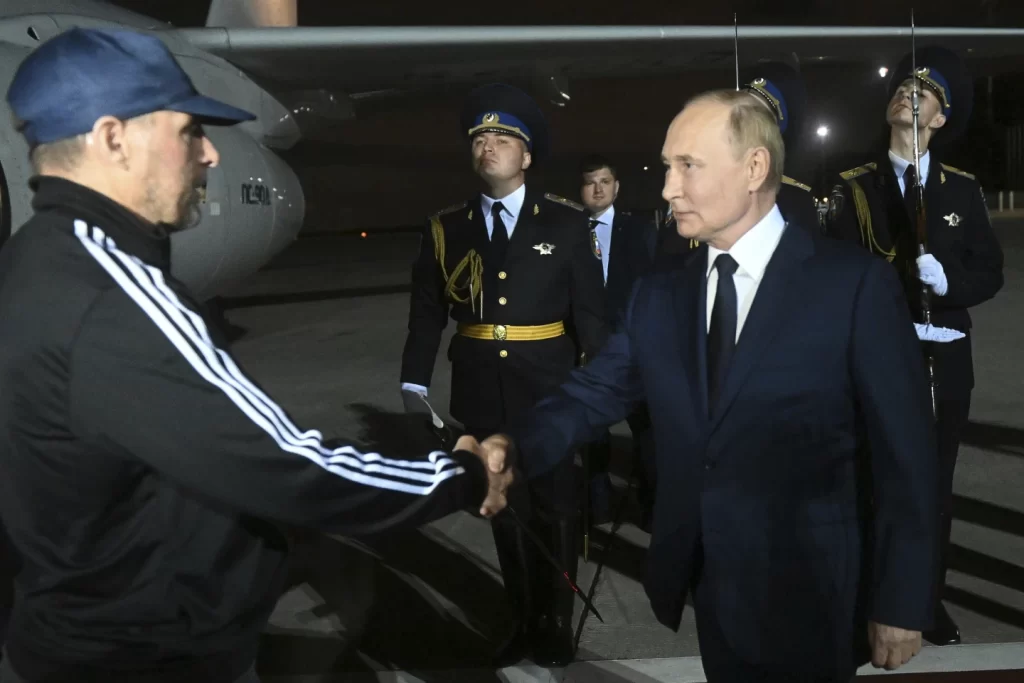Vadim Krasikov, a 58-year-old Russian at the center of Thursday’s mass prisoner swap, has been released by Germany after serving time for murder. Krasikov’s release has been a priority for the Kremlin, with President Vladimir Putin earlier hinting at interest in such an exchange to free a “patriot” held in Germany.
Krasikov was convicted for the August 23, 2019 killing of Zelimkhan “Tornike” Khangoshvili, a 40-year-old Georgian citizen who had fought Russian troops in Chechnya and later sought asylum in Germany. The murder took place near Kleiner Tiergarten, a central Berlin park, where Khangoshvili was shot from behind with a silencer-fitted handgun.

German judges, during Krasikov’s sentencing to life imprisonment in 2021, stated that he had acted on orders from Russian authorities. They provided him with a false identity, passport, and resources to carry out the assassination. Krasikov reportedly served in a special forces unit of the Federal Security Service (FSB).
The case triggered a significant diplomatic row between Russia and Germany, resulting in reciprocal diplomatic expulsions. Krasikov and his legal team contested his guilt, claiming misidentification.
In February 2024, Putin alluded to Krasikov in an interview with Tucker Carlson, suggesting Russia’s willingness to swap him for Wall Street Journal reporter Evan Gershkovich, who was jailed in Russia on disputed espionage charges.

The German government acknowledged the difficulty of the decision to release Krasikov. Chancellor Olaf Scholz’s spokesperson, Steffen Hebestreit, stated that the release of wrongfully held individuals in Russia and Belarus could only be achieved by deporting Russians “with an intelligence background” held in Europe.
Hebestreit emphasized that the decision balanced the state’s interest in enforcing criminal sentences against the freedom and well-being of innocent people imprisoned in Russia. He cited Germany’s obligation to protect its citizens and solidarity with the United States as key motivations for the swap.
This prisoner exchange highlights the complex interplay of international diplomacy, justice, and national interests in high-stakes negotiations between world powers.
apnews.com



